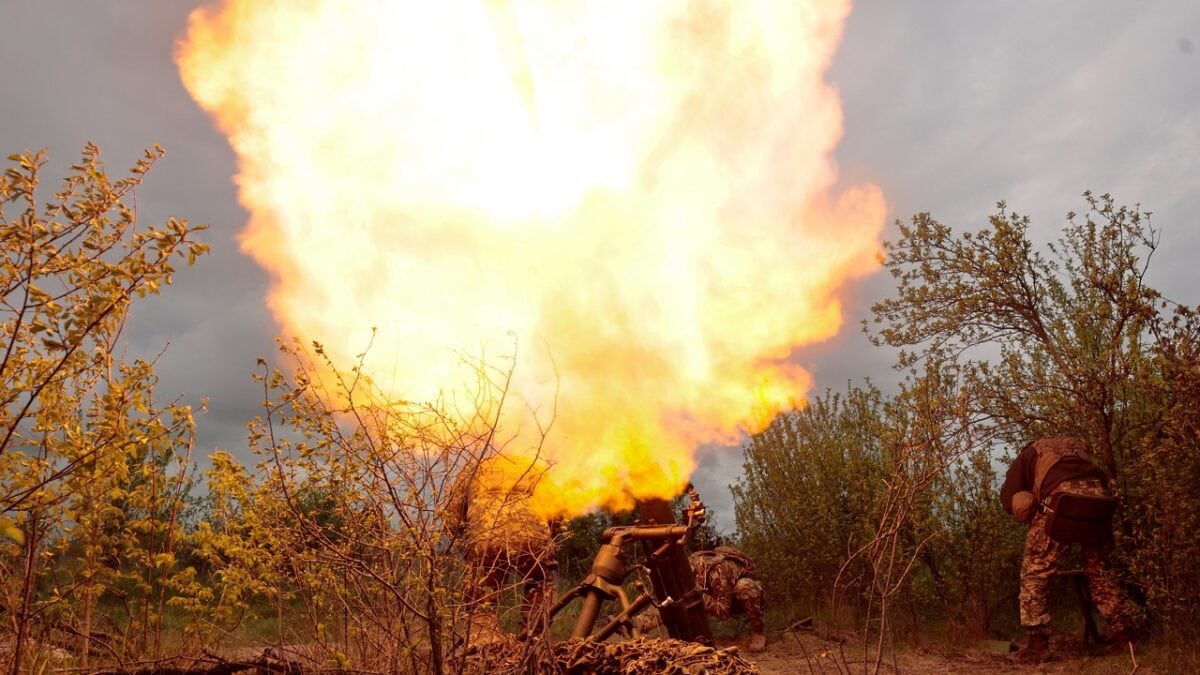The Biden Administration has struggled mightily in communicating its overall foreign policy strategy, meandering from one geopolitical crisis to the next. From ordering the chaotic 2021 withdrawal from Afghanistan to redeploying U.S. troops to Somalia with no clear purpose to President Joe Biden fist-bumping Saudi crown prince Mohammed bin Salman after framing the ideational struggle of our time as democracy versus autocracy, the White House has not explained how Washington’s foreign policies benefit America’s national interest. The war in Ukraine has been no different.
Could the Biden Administration Have Done More?
While Russian President Vladimir Putin is ultimately responsible for the carnage unleashed in Ukraine, the Biden Administration did not provide sufficient support to Ukraine before the invasion to deter Russia’s attack, which would have saved tens of thousands of lives in Ukraine and billions of dollars in U.S. taxpayer funds.
The White House failed to deter the Kremlin’s aggression through a lack of support for Kyiv and gaffes from the U.S. president during the build-up of Russian forces on Ukraine’s border. A U.S. envoy to Ukraine was not appointed until after Russia invaded Ukraine and any meaningful U.S. leverage against Moscow ended when the U.S. loosened sanctions on the Nord Stream 2 pipeline and President Biden publicly stated U.S. responses toward Russia would be limited if the Kremlin conducted a “minor incursion” into Ukraine.
The U.S. Has Sent Support but Exactly What Support has Yet Been Unclear
From the opening days of the Russian invasion of Ukraine, the White House has struggled to frame U.S. support for Kyiv in anything other than Manichean soundbites. During a March 26 speech in Warsaw, Poland, President Biden stated, “we emerged anew in the great battle for freedom: a battle between democracy and autocracy, between liberty and repression, between a rules-based order and one governed by brute force.”
Questions are now mounting about the end goal of U.S. assistance to Ukraine. Is it to foment regime change in the Kremlin, after Biden stated that Russian President Vladimir Putin “cannot remain in power”? Or is it to arm Ukraine to defend itself against the Russian attack and mediate a negotiated political settlement between Moscow and Kyiv?
Defending Democracy and Sovereignty Could Spread the U.S. Thin
America has already committed $40 billion in economic and security aid to Ukraine. As tensions with the Chinese Communist Party (CCP) worsen, Washington may need to soon re-focus its attention toward the defense of Taiwan. Ukraine must therefore gird itself for the ongoing Russian onslaught, push for a ceasefire, and rebuild the country’s destroyed infrastructure.
A political solution between Ukraine and Russia is needed and Ukraine’s wealthiest businessmen, including Rinat Akhmetov, owner of Metinvest, Ukraine’s largest steel manufacturer, can play a role in helping rebuild Ukraine’s broken economy. Zelensky adviser Mykhailo Podolyak recently stated Akhmetov has been leading by example, but he cannot continue to operate his businesses if assets are continually stolen or destroyed by Russian forces.
It is in the U.S.’ national interest, therefore, to prevent further pilfering of Ukrainian steel, grain, and other commodities by Russia’s military, so Ukraine’s private business sector can focus on efforts to stabilize Ukraine’s economy. Former U.S. Undersecretary of State James Glassman has called the theft of Ukraine’s strategic assets – steel, wheat, corn, and barley – “institutional piracy at a scale not seen since World War II.”
Securing Resources Makes a Difference
First, preventing Russian forces from profiting from the looting of Kyiv’s strategic assets and holding Moscow accountable for the theft of Ukraine’s commodities is a foreign policy that benefits every American. Every dollar of profit from the sale and export of Ukrainian steel and grain on the free market should be considered one less U.S. taxpayer dollar sent to Kyiv in aid. Furthermore, if Washington expects Russia’s advances through Ukraine to stall, the U.S. government cannot allow the Russian war machine to get fueled through the sale of Ukraine’s stolen strategic assets on the black market.
Second, while world wheat and steel are currently priced lower than before Russia’s invasion of Ukraine, Glassman stated there is no doubt that the continued looting of Ukraine’s commodities will ultimately lead to global inflationary shocks. The Initiative for the Study of Russian Piracy (ISRP) estimates 11,000 metric tons of Ukrainian steel have been stolen by Russian forces, while another 28,000 metric tons has been loaded onto ships that are moored in Mariupol, waiting to be looted.
While the White House has attempted to deflect from the catastrophic impact of the Biden Administration’s progressive climate policies on global energy prices, calling the rise at the fuel pump a “Putin Price Hike.” Russia’s pilfering of Ukraine’s grain and steel will actually turn into an inflationary shock that will raise the price of food and any new construction dependent on Kyiv’s steel. This will be the true “Putin price hike” impacting Americans, at a time when U.S. inflation has hit 40-year high levels.
As former U.S. diplomat Suriya Jayanti has observed, “the problem underlying inflation currently is supply-side … and the war in Ukraine is wreaking havoc on supply chains.” Ending Russia’s looting of Ukraine’s assets, therefore, will increase the global supply of these key commodities and curtail increasingly rising inflation.
Finally, America must help Ukraine help itself, not only through the transfer of arms to help Ukraine’s military defense against the Russian invasion but by ensuring Ukraine’s economy can ultimately rebuild itself once the war ends. The only hope for helping Ukraine negotiate an optimal political settlement with Russia is by ensuring the sale of agricultural products and the export of strategic assets.

Ukrainian servicemen fire with a mortar at a position, as Russia’s attacks continue, at an unknown location in Kharkiv region, Ukraine May 9, 2022. REUTERS/Serhii Nuzhnenko
Moving forward, if the Biden Administration continues to dither in its attempts to pursue fruitful negotiations, Congress should take the lead to ensure Ukraine’s strategic assets are secured and that the profit from the sales of these commodities is used to reduce the commitment of U.S. taxpayers to fund Kyiv’s war effort.
Future U.S. aid should be contingent upon agreements with Kyiv that Ukraine’s tax revenue generated through the sales of commodities will be used to bolster Washington’s continued support. Policies that Congress should consider include sanctions against both the Russian looters and black-market buyers of stolen Ukrainian commodities, asset seizures of construction, which used stolen Ukrainian steel, and support for reparations paid by Russia to Ukraine for any stolen assets already sold, which can then be used for Ukraine’s reconstruction, thus further easing the burden on U.S. taxpayers for such efforts.
Darren Spinck is a research fellow at The Henry Jackson Society.

